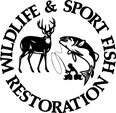B.A. Steinhagen Reservoir 2021 Survey Report  (PDF 504.5 KB)
(PDF 504.5 KB)
If you have difficulty accessing the information in this document, contact the TPWD Inland Fisheries Division for assistance.
B.A. Steinhagen Reservoir - 2021 Survey Report
Prepared by Dan Ashe and Todd Driscoll
Inland Fisheries Division - Jasper District
Brookeland, Texas
This is the authors' summary from a 33-page report. For a copy of the complete report, use the download link in the sidebar.
Fish populations in B. A. Steinhagen Reservoir were surveyed in 2021 using electrofishing and trap netting and in 2022 using gill netting. Historical data are presented with the 2021-2022 data for comparison. This report summarizes the results of the surveys and contains a management plan for the reservoir based on those findings.
Reservoir Description
B. A. Steinhagen Reservoir was impounded in 1951 on the Neches River; other tributaries include the Angelina River and Wolf, Sandy, Spring, and Rush creeks. The U.S. Army Corps of Engineers (USACE) is the controlling authority; primary uses are to regulate intermittent water releases from Sam Rayburn Reservoir, produce hydropower, and provide recreational opportunities. At conservation pool (82.5 feet mean sea level), B. A. Steinhagen Reservoir covers 10,687 acres and has a shoreline length of 160 miles. Mean depth is 4 feet and littoral areas (< 15 feet) comprised 95% of the reservoir. Boat access is excellent and provided by 12 public access points. Bank access is provided by two lighted fishing piers at Martin Dies, Jr. State Park. Most of the land around the reservoir is used for timber production.
Management History
Important sport fishes include Largemouth Bass, crappies, and catfishes. Historically, salvinia (both common and giant) and water hyacinth have been problematic in the reservoir and coverages have exceeded 40% of the reservoir surface area. The USACE has conducted numerous water level drawdowns during the summer and winter seasons to reduce vegetative coverage. However, these drawdowns were discontinued due to limited success as problematic coverages returned the following growing seasons. Since 2008, extensive herbicide treatments funded by the USACE, the Lower Neches Valley Authority, and Texas Parks and Wildlife Department have reduced problematic plant coverages during most years to < 20% of the reservoir surface area. During the summer of 2019, the reservoir was lowered for approximately 8 weeks (maximum drawdown was 26 feet below conservation pool) to repair the dam and spillway. This drawdown decreased hydrilla and native plant coverages and likely reduced Blue Catfish abundance. Historically, Blue and Channel Catfish were managed with the statewide 12-inch minimum length limit and 25-fish daily bag limit. In 2021, the statewide regulation was changed to a no minimum length limit and a daily bag limit of 25 (only 10 can be > 20 inches) and applied to B. A. Steinhagen Reservoir
Fish Community
- Prey species: Primary prey species included Threadfin Shad, Bluegill, and Gizzard Shad. Threadfin shad were the most abundant and provided ample forage for sport fish. Electrofishing catch of Bluegill and Gizzard Shad were low.
- Catfish: Blue and Channel Catfish were present in the reservoir. Historically, Blue Catfish were the most abundant, but the population declined in 2022. However, Channel Catfish abundance increased considerably in 2022.
- Temperate bass: White bass were present, but abundance was low.
- Black bass: Spotted Bass abundance increased in 2021 but size structure was poor. Largemouth Bass were moderately abundant and in desirable condition. Most fish were < 14 inches in length. In 2021, reproduction was likely high as catch of fish < 6 inches in length increased.
- Crappie: White Crappie abundance decreased over the last three surveys. Historically, Black Crappie were present in the reservoir but abundance was low. No Black Crappie were collected in 2021.
Management Strategies
Continue to manage the fishery with current harvest regulations. Conduct annual vegetation surveys and maintain invasive species signage. Support USACE as needed with herbicide treatments and salvinia weevil releases related to problematic aquatic vegetation.

Performance Report as required by Federal Aid in Sport Fish Restoration Act Texas Federal Aid Project F-221-M-3 Inland Fisheries Division Monitoring and Management Program